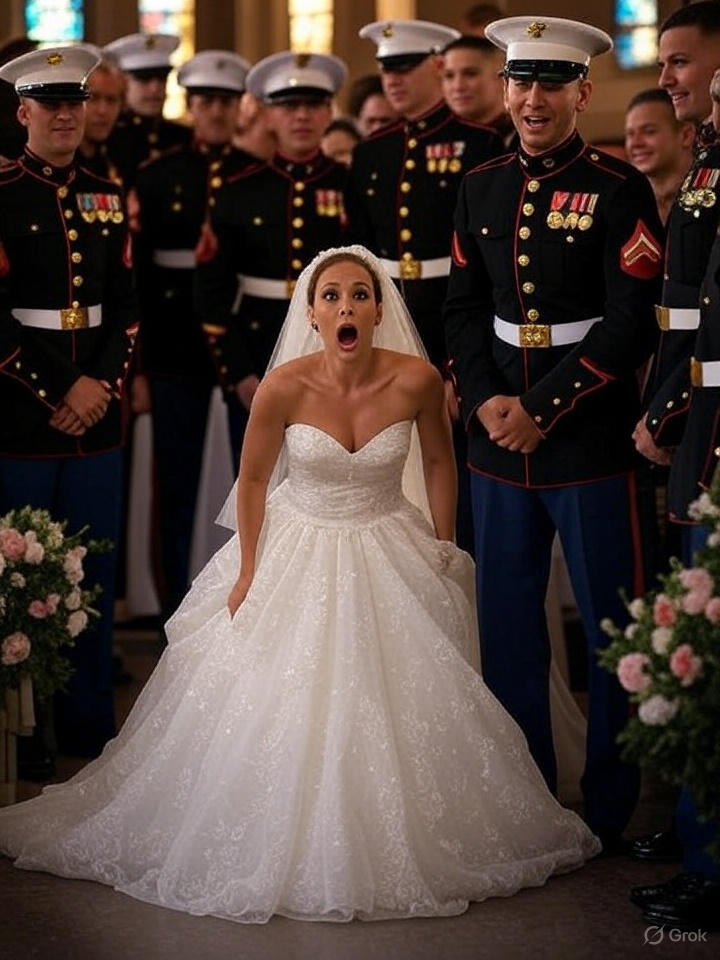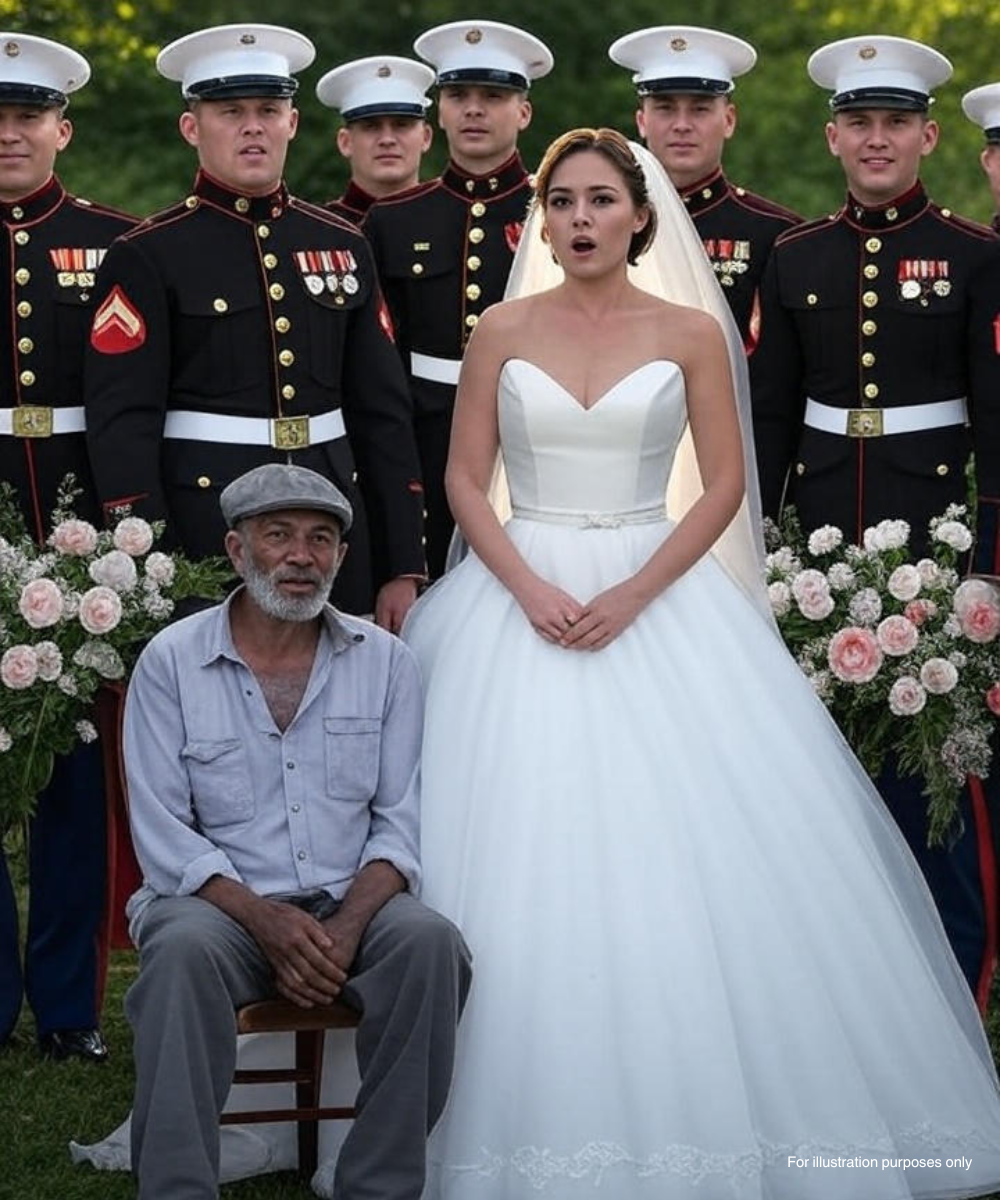Type “I’m outraged” if you believe kindness should never be judged.
Every morning at 4:30 a.m., Emily Sanchez unlocked the doors of Sunrise Bakery in San Diego. By thirty, she had already spent six years as the head pastry chef—famous for croissants that melted on the tongue and cinnamon rolls with just the right swirl of sugar.
But within the bakery walls, Emily was known for something else entirely.
Each day, before the sun rose and customers poured in, Emily would wrap a fresh pastry, pour a hot cup of coffee, and quietly leave out the back door. At the bus stop bench nearby, she’d place the meal beside a simple note:
“Wishing you a peaceful day.”
The recipient?
An elderly man with silver hair and a threadbare coat. He never begged. Never spoke. Just sat, quietly, in the same spot—every day.
In six years, Emily never asked his name. He never offered it.

Co-workers scoffed.
“She’s wasting product.”
“One day he’ll take advantage of her.”
Three months ago, under new bakery management, Emily was warned:
“Your charity is sweet, but some customers feel… uncomfortable. Maybe support a proper shelter?”
She nodded. But changed nothing.
Instead, she arrived earlier. Left the food unseen.
Until one morning, a new hire caught her returning from her ritual and whispered—loud enough for a customer to hear—
“She’s been feeding that bum for years. Every day.”
The customer replied with a shake of the head:
“Poor girl. Thinks she’s making a difference.”
Emily didn’t flinch. But the words stung—not because of the judgment, but because they didn’t see what she saw:
A human being. Not a problem.
Her mother used to say she was too soft-hearted. And when Emily got engaged to Marco, a firefighter with a heart like hers, her mom sighed again:
“Always picking up strays.”
But Emily understood something others didn’t:
Kindness isn’t about recognition. It’s about seeing the people the world has forgotten.
Have you ever seen good people misunderstood? Type “So unfair.”
She never spoke with the man. Just nodded. Made eye contact.
Until one rainy December morning, she noticed him shivering.
Without a second thought, she left her wool scarf beside the coffee.
The next morning, the napkin carried something new—a note, written in shaky pencil:
“Thank you for seeing me as a person.”
Emily folded that note and tucked it into her wallet. A quiet reminder on the days the world felt cold.
As her wedding day approached, she ordered her cake from the bakery and invited her co-workers. Marco teased her for inviting half the neighborhood, but she simply smiled.
Then, two days before the wedding, a mysterious envelope arrived.
No return address. No name. Just:
“Tomorrow I will come—not for cake, but to honor a debt.”
On her wedding day, as Emily peeked from the church’s bridal room, she saw her guests arrive… and then—him.
The man from the bench.
He wore a threadbare, but carefully pressed, suit. Shoes polished. Silver hair neatly combed. And for the first time, Emily saw his face clearly—dignified, weathered, human.
But she also heard the whispers:
“Who invited the homeless guy?”
“Is he begging at a wedding?”
Emily’s heart clenched.
Without a word, she gathered her gown and rushed from the room. Guests gasped. Her planner panicked.
Emily crossed the foyer in a blur of white, reached the man, and embraced him.
“I still remember your eyes. That first morning in 2017.”
He smiled—warm and real.
“I remember every morning. You treated me like a man, not a shadow.”
Then—the sound of approaching vehicles. Doors slammed. Boots echoed.
Twelve United States Marines, in full dress blues, entered the church.
Perfect formation. Polished shoes. White gloves.
Captain Duncan stepped forward. Saluted.
“On behalf of Alpha Company, Third Battalion, Fifth Marines… we are here to honor the woman who sustained a hero—for six years.”
Gasps. Stunned silence.

“This is Sergeant Victor Hale.
He saved nine lives in Fallujah in 2004.
After losing his family in a car crash, he disappeared.
Refused benefits. Refused attention.
He vanished into silence.”
Another Marine stepped forward, handing Emily a shadow box—a Silver Star medal… and a faded photo.
In the photo: Victor, younger, bloodied, carrying a wounded Marine through war-torn streets.
That Marine?
Captain Duncan himself.
“He carried me four blocks under enemy fire,” Duncan said, voice tight.
“He went back—eight more times.
He never claimed his medal.
But because of you, Ms. Sanchez… he lived.”
Tears rolled down Emily’s cheeks.
“I never knew,” she whispered.
“That was the point,” Victor said.
“I didn’t want to be remembered for war.
I just wanted to be seen.”
The Marines created an honor guard leading to the altar.
Duncan addressed the stunned crowd:
“She didn’t know he was a war hero.
She simply fed a stranger, every day, without question.”
One bridesmaid wept.
“She paid for the pastries herself. Every morning. For six years.”
Another co-worker stepped forward.
“We teased her. I’m ashamed now.”
Victor turned to Emily.
“I came today to give you my only gift left—my story, and my thanks.”
Marco joined them, extending a hand.
“Sir… will you walk my bride down the aisle?”
Victor nodded, emotion breaking through.
And he did.
After the honeymoon, Emily didn’t return to the bakery.
Instead, she and Marco launched The Quiet Table—a no-questions-asked breakfast program for homeless veterans. No headlines. No cameras.
Just food, notes of hope, and warm coffee.
Each month, Emily receives a postcard from Victor—different cities, same message:
“Every breakfast is a salute.
Thank you, Emily.”
On their first wedding anniversary, 12 Marines returned—this time in civilian clothes.
Each held a flower.
“We’ll take shifts now,” Duncan said.
“This honor won’t be forgotten.”
Today, The Quiet Table feeds dozens. A wooden sign hangs above the counter:
“Everyone who sits at this table has a story worth knowing.”
Victor’s napkin note remains framed on the wall:
“Thank you for seeing me as a person.”
Under it, Emily has added her own:
“You don’t need to wear a uniform to earn a salute.
You only need to see the unseen.”
Type “I will live with kindness” if you believe even a small meal can save a great soul.
Because sometimes, the person you quietly feed at sunrise once carried his brothers through fire.
Because some of the world’s greatest heroes aren’t asking for parades… they’re just hoping someone sees them as human.
Because every act of kindness—no matter how small—is a salute to dignity.